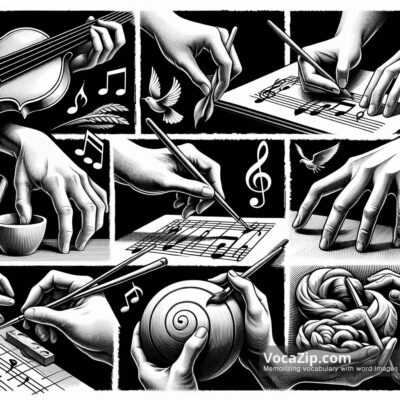experience meaning
experience :
knowledge, skill
noun
▪ She has experience in teaching.
▪ She has knowledge in teaching.
▪ His work experience is impressive.
▪ His work skill is impressive.
paraphrasing
▪ expertise – skill
▪ practice – doing
▪ knowledge – understanding
▪ familiarity – being used to

experience :
to undergo, to feel
verb
▪ They experienced a lot of joy.
▪ They felt a lot of joy.
▪ She experienced a new culture.
▪ She felt a new culture.
paraphrasing
▪ undergo – to go through
▪ encounter – to meet
▪ feel – to sense
▪ endure – to go through
Pronunciation
experience [ɪkˈspɪəriəns]
The stress is on 'spir' and sounds like 'ik-speer-ee-uhns'.
Common phrases and grammar about experience
experience - Common meaning
noun
knowledge, skill
verb
to undergo, to feel
Part of Speech Changes for "experience"
▪ experienced (adjective) – having knowledge or skill
▪ inexperienced (adjective) – lacking knowledge or skill
Common Expressions with "experience"
▪ gain experience – to get knowledge
▪ share experience – to tell knowledge
▪ lack experience – to not have knowledge
▪ real-world experience – practical knowledge
Important examples of experience in TOEIC
Vocabulary examples from the TOEIC test
In TOEIC vocabulary questions, experience often refers to work or life knowledge.
Example of a confusing word: experiment (to test or try)
Grammar examples from the TOEIC test
Experience as a verb is often used to describe undergoing or feeling something in TOEIC questions.
experience
Idioms and fixed expressions in TOEIC
hands-on experience
'practical knowledge', used when talking about direct involvement.
learn from experience
means 'to gain knowledge from doing'.
Differences between similar words and experience
experience
,
expertise
differences
Experience refers to practical knowledge gained over time, while expertise indicates a high level of skill.
Words with the same origin as experience
The origin of experience
The word 'experience' comes from Latin 'experientia', meaning 'trial' or 'experiment'.
Word structure
It has the prefix ex (out), root per (try), and suffix ence (noun), meaning 'to try out'.
Words with the same origin
The root of experience is per (try). Words with the same root include experiment (to try out), peril (danger), and expert (skilled person).
Please select an image in the quiz
Previous post and next post







